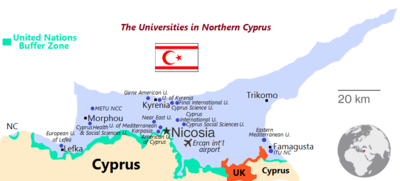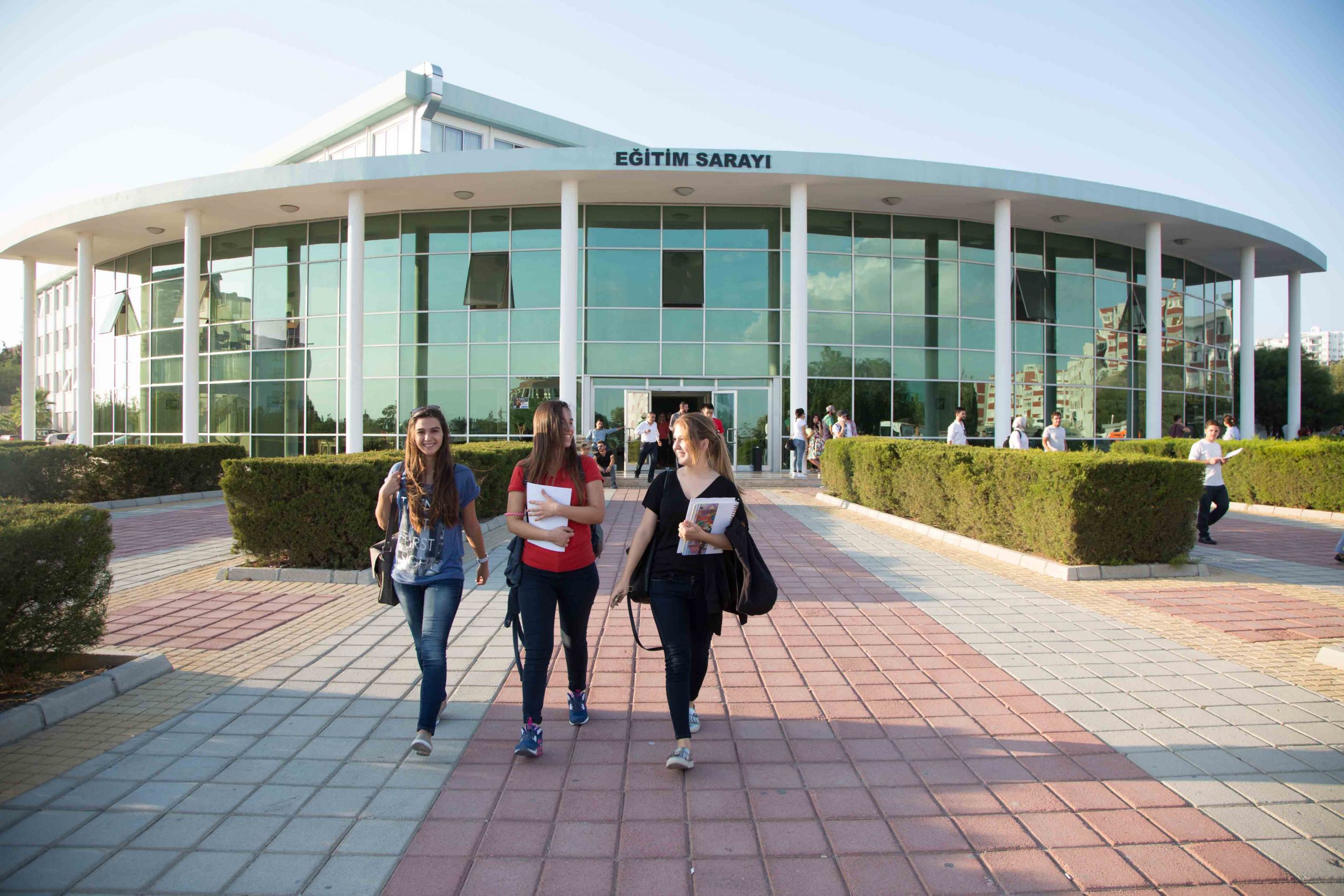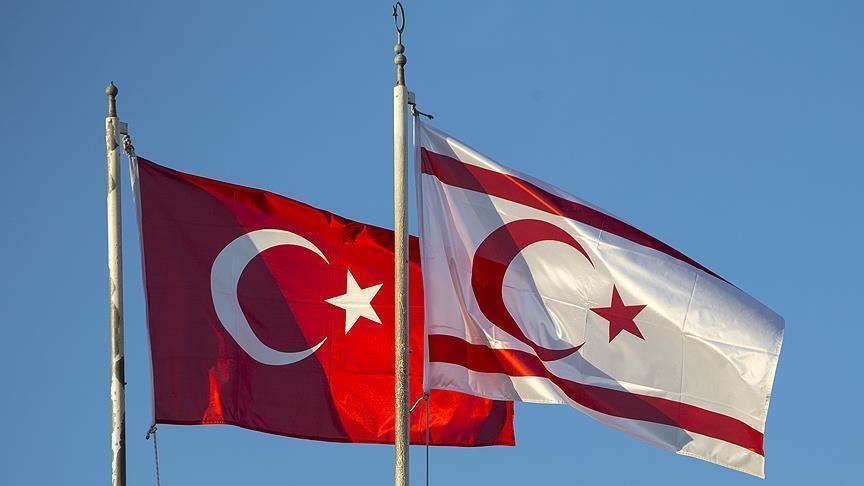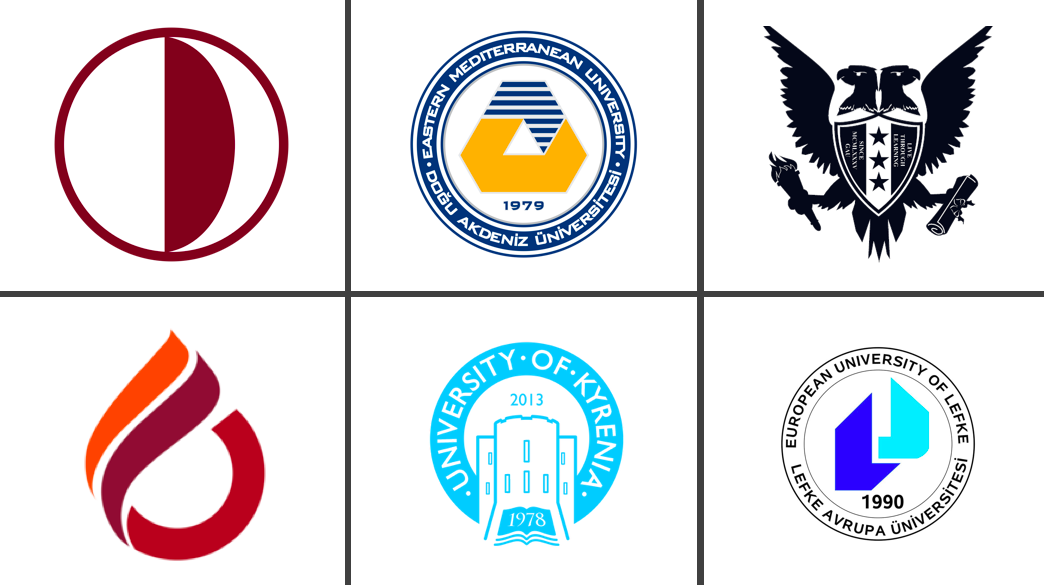By Erika Koutroumpa,
In 1974, after a Greek-supported coup and an armed conflict, Turkey created the nation of Northern Cyprus, the only recognized by one country in the world. Despite having limited diplomatic relations with other countries and an international embargo, the statelet boasts 22 universities, a lucrative business with thousands of international students coming to study on the island.
According to the former education minister Nazim Cavusoglu, the university sector makes up over a 3rd of the state’s GDP (35%) proving to be of great economic importance for the statelet (“far ahead of tourism”), considering that its unrecognized status has limited opportunities for economic advancement. Northern Cyprus already boasts 22 universities, a large amount given that its population is approximately 326,000 and that the neighboring state of the Republic of Cyprus has 9 universities for its 1.244 million. Commentators: the higher education policy of the north is the following: open as many universities as possible attracting as many foreign students as possible, which has led to uncontrollable growth of the university sector over the past decade.

Universities in Northern Cyprus are currently accredited by the OYSM, the Turkish ministry of education, and are recognized mostly by itself and its brother state. Since there is a lack of international recognition, higher education is not subject to international regulations creating a loophole for entrance to the island. Every year multitudes of foreign students flock to the northern side of the island thanks to its low tuition fees and proximity to the EU hoping to improve their life. What further enhances the appeal of TRNC’s education scheme is the lack of bureaucracy regarding visas which is a stark contrast to the southern side of the island.
However, this does not mean that the students will have access to the Republic of Cyprus – strict border laws prohibit entry from the northern side. According to the government of the Republic of Cyprus, “visas will not be granted to applicants with itineraries including illegal entries from ports and airports situated to the part of the Republic of Cyprus which is occupied by the Turkish troops since 1974”. All foreign students can enter the TRNC without pre-issued visas but need to fly via turkey due to an international embargo and effectively instead of gaining fast and easy access to the European union, many have claimed to have been scammed into coming to TRNC for studies thinking they would enter the republic of Cyprus.
Out of the 110,000 university students in 22 universities, some 51,000 are from developing nations. There have been multiple reports of African students being conned into arriving in the country via agents or middlemen who themselves were formerly studying there. “Scholarships” up to 75% are often offered to lure prospective students into the trap, with the marked-down price being the actual tuition cost (3,000 euros per annum). Students say they were misled about study or work opportunities or that they were not even aware of the division on the island. Sometimes the middlemen seize the students’ passports on their arrival. Instead of being taken to school, they are forced into prostitution, according to Centre for Migration, Identity, and Rights Studies director Mine Yücel. Hence, having no way to return, these students succumb to financial hardship and become victims of criminal groups.
It seems that two categories of students have been formed, based on their attendance at university lectures: “active” and “passive” students. Almost half of the north’s more than 108,000 “active” tertiary students come from outside of TRNC or Turkey in the 2021-2022 academic year, with 17,400 from Nigeria alone in the spring semester. At the same time, there were 15,000 “passive” students stuck in TRNC unable to attend classes. This begs the question – what is happening to such a large number of students?

The Turkish National Agency for the Prohibition of Trafficking in Persons issued a statement in mid-2022 saying that many young Nigerians arriving in the TRNC expecting to study are “locked up in private apartments and forced into prostitution”. According to the Human Rights Platform, about 70% of the individuals contacting its anti-trafficking hotline since November 2021 were Nigerian women aged 18–30, most having entered the country with the help of another person already there, alleging to be an agent of certain universities in Cyprus. The universities of the north are allegedly aware of the human rights violations but have not made any move to correct the situation
Turkey is not the only country that has warned against this phenomenon – other countries have issued warnings and the US government has also highlighted cases of human trafficking involving international students in Cyprus. Most importantly, the Nigerian government has advised Nigerians against going to the northern part of Cyprus because of the killings and continued mysterious deaths of black university students in the country. During a briefing of the Nigerian government’s diaspora commission NiDCOM, the chairman Abike Dabiri Erewa said that it is difficult to employ international diplomacy in investigating the deaths, due to the northern part of Cyprus only being recognized by Turkey.
According to Fezile Osum from the NGO Human Rights Platform, prostitution in the north is illegal and human trafficking was criminalized for the first time in 2020, but no convictions based on this charge have been made yet. In a 2020 European Commission report, based on 2017-18 data, Cyprus was second in the number of identified or presumed victims of human trafficking relative to its population, with 168 per million people, with the UK coming in second with 91 cases per million. Similarly to their neighbors, the southern side, the Republic of Cyprus, came up with comprehensive anti-trafficking legislation for the first time in 2014. It was not until 8 years later when a Limassol court declared in March 2022 that trafficking offenses have reached alarming proportions in the country
The Republic of Cyprus, an EU member, is facing record numbers of new asylum seekers mostly from across the UN buffer zone and accuses turkey of encouraging the influx. According to a study by Colak et al, the island of Cyprus started gaining more popularity as a route for human trafficking in 2004, when the Republic of Cyprus (RoC) entered the European Union and the Green Line Buffer Zone hence began serving as a border of the European Union. Hence, for migrants and smugglers alike, TRNC is considered the ideal transit country, due to its easy access via air or sea and its lax immigration law. There were 16,700 new asylum seekers in the Republic of Cyprus in 2022 up until September, most coming from Nigeria, the DRC, and Pakistan, which coincide with the countries of highest expat students in the TRNC.

According to Nasia Hadjigeorgiou, assistant professor at the University of Central Lancashire Cyprus for the Financial Mirror, the lack of progress in resolving the conflict between the two sides of the island has shifted attention and resources away from issues like human trafficking, it has also inhibited collaboration between the law enforcement forces of the two sides
Negotiations between the two sides of the island broke down in 2017, with Northern Cyprus having its own independent government and do not seem to be reignited any time soon.
To conclude, the Turkish Republic of Northern Cyprus and its non–restrictive student visa policies appear to be a powerful loophole for foreign students to gain access to the EU and to a better life. However, appearances can be deceiving and this situation has led to a surge in human trafficking, not just in the North but in both sides of the island. Both administrations seem to be making efforts, albeit insufficient. For this issue to be resolved, collaboration between the two police forces is required but in a country so deeply divided this might be more of a utopic solution.
References
- “How universities On Cyprus have joined the Human Trafficking game”, Sertan Sanderson, 25 November 2022, infomigrants.net. Available here
- “Foreign university students sold ‘dreams’ in North Cyprus”, 23 November 2022, rfi.fr. Available here
-
“Transit migration in Northern Cyprus (TRNC)”, Y. Colak, H. Tekin, R. Aydin, Epiphany Volume 7, No.1, 2014, ISSN 1840-3719
-
“Entry Requirements of Cyprus”, High Commission of the Republic of Cyprus in Pretoria, last modified on 6 February 2023, mfa.gov.cy. Available here




